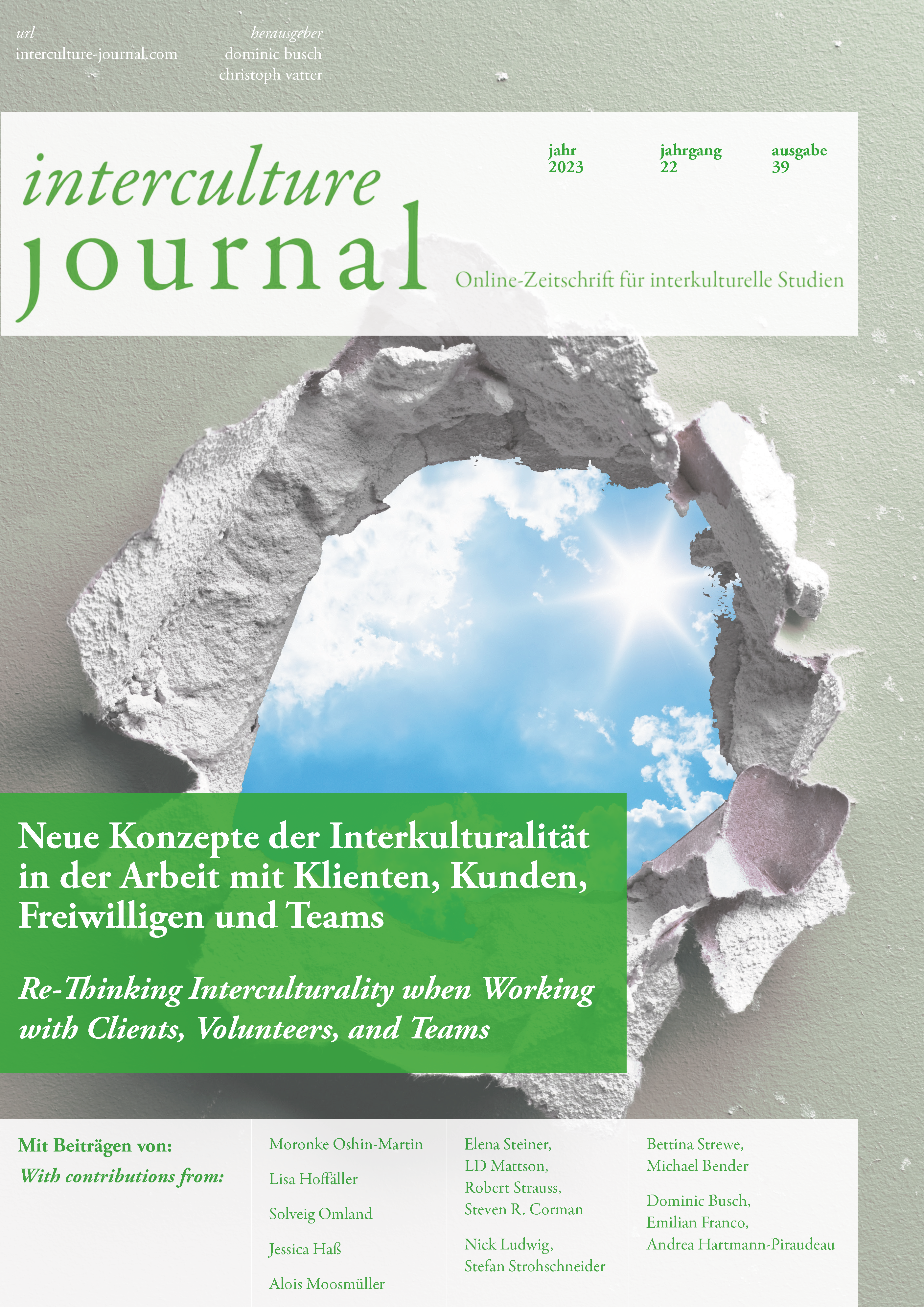The epistemologies of mediation
Is mediator passiveness a decolonising strategy?
Abstract
The social theoretical demand for the decolonisation of fields of knowledge and action suggests that such a transformation is possible in a unidirectional way. However, the initial states of these fields often turn out to be highly complex and multi-layered. This article takes the example of the professional orientations of conflict mediators to show how philosophical and ethical maxims, pedagogical concepts, orientation towards professional economics, involvement in professional discourses as well as personal world views fuse to work strategies that, in the end, are difficult to classify and evaluate against the background of de-colonial goals. While the textbook literature generally assumes that professionalised social activities are tied back to social-theoretical epistemological concepts, the literature on mediation reveals a break: As a result, action practice is often detached from epistemological theoretical foundations. Instead, styles and best-practice models from practice are reconstructed, showing parallels to the social theoretical foundations but no longer explicitly linking to them. These considerations lead to the conclusion that demands for decolonisation should start with more particular and specific aspects of action to avoid being thwarted by the complexity found. Conversely, mediators could gain additional ethical clarity if the epistemological complexities outlined here were more explicitly addressed in mediation training.
Downloads
Published
Issue
Section
License
Copyright (c) 2023 Dominic Busch, Emilian Franco, Andrea Hartmann-Piraudeau

This work is licensed under a Creative Commons Attribution-NonCommercial-NoDerivatives 4.0 International License.
Alle Beiträge im Interculture Journal erscheinen unter der Lizenz CC-BY-NC-ND 4.0.


